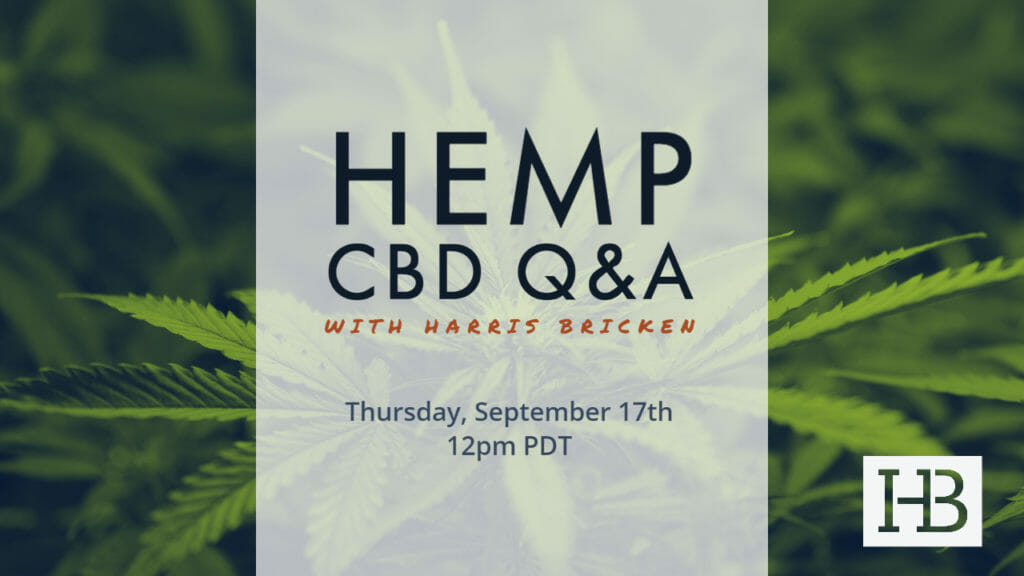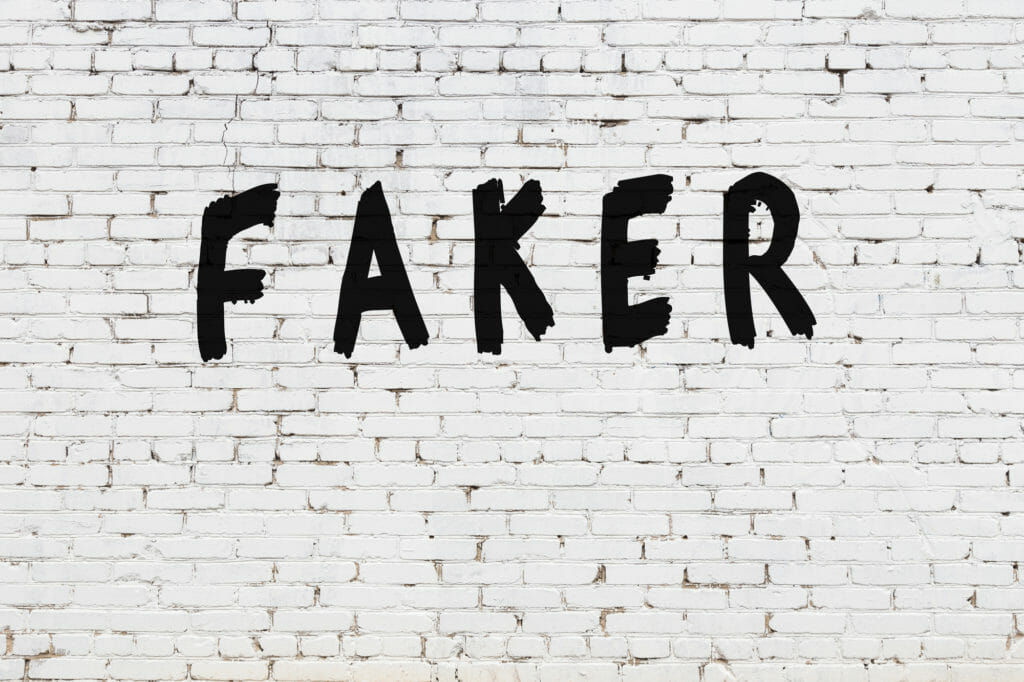Wednesday, September 30, 2020
Missouri Cannabis Supply Chain Ready For Business
from News – High Times https://ift.tt/3ilEH8a
via IFTTT
Study Shines Light On Women Who Use Cannabis To Cope With Effects of Menopause
from News – High Times https://ift.tt/2SdHyp7
via IFTTT
The First Trump/Biden Presidential Debate: Who Is This For?
from News – High Times https://ift.tt/3ieftZz
via IFTTT
Minority Grant Finalists In California Cannabis Competition Are Mostly Women
from News – High Times https://ift.tt/3mYOgNU
via IFTTT
Cannabis life advice: Secondhand ‘rona smoke; Instagram dealers
Keep your distance in the session; and avoid Instagram scammers entirely.
The post Cannabis life advice: Secondhand ‘rona smoke; Instagram dealers appeared first on Leafly.
from Leafly https://ift.tt/36h18sZ
via IFTTT
City of Ann Arbor decriminalizes psychedelic plants and fungi
The city council has declared psychedelics a "lowest enforcement priority."
The post City of Ann Arbor decriminalizes psychedelic plants and fungi appeared first on Leafly.
from Leafly https://ift.tt/3jl8cbB
via IFTTT
Costa Rica Moves Toward Medical Cannabis Legalization

In recent posts, we’ve explored legislative developments regarding cannabis in Argentina, Colombia and Mexico. Today, we turn our attention to Central America, and specifically Costa Rica, where a bill that seeks to legalize medical cannabis is winding its way through the legislative process.
The bill was originally introduced by Zoila Rosa Volio in March of last year, but has since stalled. Based on comments by Volio, bureaucratic ineptitude is mostly to blame (“the MAG [Ministry of Agriculture and Livestock] is like the Bermuda Triangle”), though opposition from some deputies on religious grounds appears to have also played a role (“I do not believe that a cannabis plant is a sin … because it is God’s work”).
However, the economic hardships brought on by the coronavirus pandemic have provided new impetus for the bill. As Volio points out, “It would be a project to generate employment. There are many companies that are bankrupt that could start producing these types of products. They could come together and plant hemp and establish a safe market where their product can be placed.”
In addition to the possible boost to its agricultural sector, Volio suggests Costa Rica could become a cannabis R&D cluster. Given Costa Rica’s established role as an exporter of medical devices and medical tourism destination, this aspiration is far from fanciful.
In May, President Carlos Alvarado announced his government’s support for the bill, specifically citing it as “one of the initiatives to reactivate the economy after the crisis caused by [COVID-19].” Last week, the Legislative Assembly Environment Committee approved an amended text.
With regard to hemp, the bill would authorize “the cultivation, production, industrialization, and marketing of non-psychoactive hemp [below 1% THC] or cannabis and its products or by-products, for food and industrial purposes.” Producers would need to register with the MAG, while those carrying out research and processing would need to register with the Health Ministry. The bill would also call for the executive branch to issue necessary regulations.
In addition, the bill would authorize “the use and exploitation in the national territory of psychoactive cannabis [over 1%] for the medical and therapeutic purposes,” covering both cannabis cultivation and processing. Cultivation activities involving psychoactive would require a license issued by the MAG, while research and processing activities would need to be licensed by the Health Ministry. Licenses would be available to natural and legal persons.
Developments in Costa Rica confirm that a cannabis revolution is underway across Latin America. Leading the charge are personalities like Volio, who are emerging from across the political spectrum, bringing a diversity of philosophical approaches in support of legalization initiatives. For instance, another of Volio’s recent initiatives concerns the closure of unauthorized runways, often used by drug traffickers. It is refreshing to see politicians who don’t see an inconsistency between supporting law-and-order initiatives and advocating for greater access to Hemp-CBD and medical cannabis.
The post Costa Rica Moves Toward Medical Cannabis Legalization appeared first on Harris Bricken.
from Canna Law Blog – Harris Bricken https://ift.tt/2G669Ki
via IFTTT
Tuesday, September 29, 2020
New House Pandemic Relief Bill Includes Cannabis Banking Provisions
from News – High Times https://ift.tt/3n4lCuM
via IFTTT
In Mississippi, medical marijuana pits the people vs. the politicians
The people’s initiative (65) legalizes for patients. The politicians’ alternative (65A) is a trap-and-kill trick.
The post In Mississippi, medical marijuana pits the people vs. the politicians appeared first on Leafly.
from Leafly https://ift.tt/30jfmpe
via IFTTT
California Bureau of Cannabis Control Seeks Civil Penalties for Unlicensed Commercial Cannabis Activity

On September 24, 2020, the Bureau of Cannabis Control (“BCC”) issued a press release announcing its filing of a complaint seeking civil penalties from Vertical Bliss, Inc., also known as Kushy Punch (“Vertical Bliss”), as well as other related individuals for unlicensed commercial cannabis activity.
For a bit of background, in November of last year, the BCC and the CDPH announced that they had revoked the commercial cannabis licenses issued to Vertical Bliss at its Chatsworth, CA facility. According to that announcement the regulatory authorities had received a complaint of illegal cannabis activity at a location in Canoga Park. Upon searching the facility, regulators found and seized nearly $21 million in illegal cannabis products, including 7,200 illegal vape cartridges. The regulators discovered a link between the Canoga Park facility and the licensed facility in Chatsworth, which is why the Vertical Bliss licenses were revoked.
It is unclear why the BCC and CDPH waited nearly a year after revoking Vertical Bliss’ licenses to file a civil complaint, although the agencies may have been conducting further investigation. According to the press release:
The complaint alleges that Vertical Bliss conducted unlicensed operations on an undisclosed premise in Canoga Park, California, and inverted illegally manufactured product back into the regulated market. On October 2, 2019, in response to tips about illegal manufacturing and distribution of cannabis goods, the Division of Investigation executed search warrants at the unlicensed Canoga Park location. The search revealed significant quantities of cannabis concentrates, edibles, vape cartridges and raw materials. Seized records document the production of more than 3.3 million Kushy Punch brand gummies during an 18-month period, with an estimated value of $64 million.
Vertical Bliss simultaneously held cannabis manufacturing and distribution licenses for a premises located in Chatsworth, California. These licenses were revoked, following the discovery of the unlicensed operations.
This complaint illuminates an important point that illegal commercial cannabis activity, even if completely “separate” from a compliant cannabis facility, can jeopardize the licenses for that legal facility if conducted by the same people. Here, the BCC has alleged that:
Even as Defendants went through the application process for the Licensed Premises, they were continuously engaged in manufacturing activities as well as storage and transportation of cannabis products to and from the Unlicensed Premises.
The BCC further alleged that those illegal gummies manufactured at the Canoga Park facility were actually introduced into the legal, regulated market through distribution at the licensed Vertical Bliss facility.
According to the BCC, the defendants were also manufacturing products that would have been unlawful under the state regulations had they been made in a licensed facility, because those products (in particular, a gummy product called Kushy Push T.K.O.) had a 20-milligram dose of THC per serving. State regulations cap a serving size at 10-milligrams of THC.
The state alleges in the complaint that Vertical Bliss’ conduct deprived it of tax and licensing fee revenue, and that it is seeking civil penalties. The state is also seeking an order mandating that Vertical Bliss pay for all of the unlawful product to be properly destroyed.
While the path to licensure under California’s regulated cannabis system can be long and onerous, this is an important reminder that resorting to an unlicensed cannabis operation while your licenses are pending will not just open you up to criminal enforcement – it will jeopardize those pending licenses as well, and could result in civil penalties. We’ll be following this closely to see how the court resolves this dispute.
The post California Bureau of Cannabis Control Seeks Civil Penalties for Unlicensed Commercial Cannabis Activity appeared first on Harris Bricken.
from Canna Law Blog – Harris Bricken https://ift.tt/2EHpVLd
via IFTTT
Monday, September 28, 2020
Top 9 arguments in support of marijuana legalization and regulation
Legalization is gaining momentum. Here's the debate-winning facts.
The post Top 9 arguments in support of marijuana legalization and regulation appeared first on Leafly.
from Leafly https://ift.tt/3kWdzyp
via IFTTT
In South Dakota, voters have to shout twice to legalize marijuana
Two measures, working together, were crafted to ensure politicians don’t repeal the will of the voters.
The post In South Dakota, voters have to shout twice to legalize marijuana appeared first on Leafly.
from Leafly https://ift.tt/3jig51G
via IFTTT
New Bill Would Give Cannabis Businesses Emergency Relief Access
from News – High Times https://ift.tt/30dYKzc
via IFTTT
The classic rolling paper has some friends to add to your stash
With cones and 100% organic hemp papers, Zig-Zag has everyone's joint needs in mind.
The post The classic rolling paper has some friends to add to your stash appeared first on Leafly.
from Leafly https://ift.tt/2Gf9UfZ
via IFTTT
The Hemp Industry Responds to the DEA Rule With a Lawsuit

On August 21, the Drug Enforcement Agency (the “DEA”) released an Interim Final Rule (the “Rule”), which, in part, suggests that in-process hemp extract shall be treated as a schedule I controlled substance during any point at which its THC concentration exceeds 0.3 percent on a dry weight basis. “Any point” includes even fleetingly during the processing phase and includes situations where the THC percentage is brought back into legal compliance for the finished product.
In response to this threat, close to 2,500 hemp stakeholders have already expressed their opposition to the Rule by submitting comments via the federal public docket. But some have taken their opposition one step further by suing the DEA. On Friday, September 18, the Hemp Industries Association (“HIA”) and RE Botanicals, a South Carolina hemp CBD manufacturer, filed a petition against the DEA and its acting administrator, Timothy Shea, in the U.S. Court of Appeals for the District of Columbia.
The petitioners claim that the Rule is unlawful because it exceeds the DEA’s authority and violates the Agriculture Improvement Act of 2018 (the “2018 Farm Bill”). Specifically, the Rule contradicts the plain language and the intent of the 2018 Farm Bill, which legalized hemp, its derivatives, extracts and cannabinoids so they could be regulated as agricultural commodities, and thus, fall outside the DEA’s jurisdiction.
In addition, HIA and RE Botanicals argue that the DEA failed to issue the Rule in compliance with administrative procedures imposed under the Administrative Procedure Act (the “APA”). Indeed, Mr. Shea implemented the Rule without providing the public with notice and the opportunity to comment before the Rule went into effect. Instead, the Rule provides that its content “merely conforms DEA’s regulations to the statutory amendments to the [Controlled Substances Act] that have already taken effect, and it does not add additional requirements to the regulations.” (Emphasis added).
While the Rule clearly suggests that the DEA is exceeding its authority and is attempting an illegal power grab over lawful hemp activities, only time will tell whether the U.S. Court of Appeals for the District of Columbia will be receptive to the petitioners’ arguments. Yet, one thing is certain, the hemp industry is determined to protect the lawful production of hemp that Congress established when it enacted the 2018 Farm Bill.
Since the enactment of the 2018 Farm Bill, the hemp industry has had to continuously fight state and federal roadblocks to protect its interest and has had to overcome obstacles with which no other legal industry has been confronted. Yet, the industry’s tenacity along with this lawsuit—one of several lawsuits filed by the industry against state and federal regulators—should give the DEA pause as the industry signals that DEA cannot flat-out ignore the legality of hemp.
If you wish to support the industry it this effort, be sure to submit your comments to the DEA by October 20. Also, contact your representatives to convey the need for Congress to clarify the regulatory gap that is at the center of this Rule. As written, it has the potential to destroy or seriously impair the hemp industry.
The post The Hemp Industry Responds to the DEA Rule With a Lawsuit appeared first on Harris Bricken.
from Canna Law Blog – Harris Bricken https://ift.tt/348TIVI
via IFTTT
Sunday, September 27, 2020
Investment and Securities Litigation – Handshake Deals Are Not. Your. Friend.

We’ve been monitoring and reporting on the growing trend of investment and securities fraud litigation in the cannabis industry, and this week brings yet another case.
In Murray v. Camp, et al., Murray is suing three Washington entities and their principals for breach of contract, unjust enrichment, fraud, and violation of the Securities Act of Washington. Murray alleges that in 2016, he traveled from his home state of Texas to Washington to meet with the defendants about investing in their marijuana businesses. At that meeting, the parties orally agreed Murray would provide a $50,000 loan to facilitate development of the defendants’ operations, and in return, Murray would be paid “above and beyond” that amount. The parties then executed two operating agreements – with one company assigning a 25% interest to Murray, and another company assigning a 6% interest. Based on those agreements, Murray provided the $50,000.
Of course, Murray claims everything then went sideways for him. In addition to the typically alleged facts that he was never actually added as a member of either company or given distributions at any time, he discovered two other key facts of fraud that most of our readership probably already recognized when I mentioned he was a resident of Texas above. First, Washington does not permit non-residents to own any percentage of its licensed marijuana businesses. Second, and relatedly, Washington does not permit non-residents to obtain any percentage of a licensed marijuana business’ profits. The entire agreement, Murray claims, was a fraud and scam because the defendants knew all this, misrepresented or withheld these facts, and took his money anyway.
This case is a bit different from other cases we’ve reported on because obviously, Murray theoretically could have known he wasn’t legally able to obtain those interests or profits. He alleges he was justified in representing on the defendants’ “specialized knowledge and experience in the Washington cannabis industry,” but we’ll see what Judge Theiler thinks. This case was recently removed from King County Superior Court to the Western District of Washington, so it’s just getting started. We’ll continue to monitor developments and report on any significant arguments made by the parties or rulings made by the federal court.
For other case summaries in this space, see:
- Cannabis Securities Litigation: Alleged Failure to Disclose Material Information Leads to Federal Lawsuit
- SEC Sues Cannabis Players for $25 Million Offering Fraud
- Hemp/CBD Litigation: Curaleaf Hit With Federal Class Action Lawsuit Alleging Securities Violations
And please, consider this case a cautionary tale and always make sure to consult experienced and knowledgeable attorneys in any transaction – big or small, with friends or strangers. Putting in that time and expense up front will likely save you from a lot more down the road.
The post Investment and Securities Litigation – Handshake Deals Are Not. Your. Friend. appeared first on Harris Bricken.
from Canna Law Blog – Harris Bricken https://ift.tt/2HC70mf
via IFTTT
Saturday, September 26, 2020
Hemp CBD Q&A: The Webinar Video Replay

For anyone who was not able to join our Q&A webinar last week on Hemp CBD, we’ve got you covered! Below, please find the full webinar for your viewing pleasure.
The post Hemp CBD Q&A: The Webinar Video Replay appeared first on Harris Bricken.
from Canna Law Blog – Harris Bricken https://ift.tt/3mV3LXe
via IFTTT
Friday, September 25, 2020
Michigan May Be The Next State To Clear Cannabis Convictions
from News – High Times https://ift.tt/3l1eJJ9
via IFTTT
6 terrible stoner personas as represented by ugly lighters
Ugly lighters aren't just for collecting. They're also for doing deep analyses on all the stoners you've ever met.
The post 6 terrible stoner personas as represented by ugly lighters appeared first on Leafly.
from Leafly https://ift.tt/33Zocth
via IFTTT
Where to find Maine’s recreational marijuana stores
Maine's adult-use cannabis stores open Oct. 9. Leafly has them mapped on its app and listed here.
The post Where to find Maine’s recreational marijuana stores appeared first on Leafly.
from Leafly https://ift.tt/3cvjDLf
via IFTTT
Oregon Hemp Litigation: Does Oregon’s Eviction Moratorium Apply to Cannabis Businesses?

In a word, yes.
A lawsuit recently filed in Jackson County, Oregon by a tenant alleges that his landlord has wrongfully evicted him from a warehouse containing 36,000 pounds of hemp, which the plaintiff alleges will be worth $1.5 million when processed, and 500 pounds of trimmed flower with a market value of $175,000. (Marks v. Laminate Tech., Inc., 20CV31971 – email me if you’d like a copy of the complaint). Before discussing the lawsuit, let’s briefly review Oregon’s moratoria on evictions, which we’ve closely watched as we’ve advised both landlords and tenants on their options resulting from the moratoria.
On April 1, Governor Brown signed Executive Order 20-13, which imposed a temporary moratorium on evictions in response to the COVID-19 outbreak. This order followed a prior order (20-11) that imposed a temporary moratorium on residential evictions for nonpayment of rent. In Order 20-13, Governor Brown extended that moratorium to include non-residential tenancies (i.e. commercial tenants). Order 20-13 prohibits commercial landlords from terminating any tenant’s lease and from taking action, judicial or otherwise, relating to non-residential evictions for the nonpayment of rent, late charges, utility charges, or other charges or service fees.
The order contained no carve-out for cannabis businesses – so hemp and marijuana businesses were entitled to the protections of Order 20-13. Notably, Order 20-13 did not apply to the termination of leases for causes other than nonpayment. Since most commercial leases impose a number of other conditions on tenants other than paying rent (e.g. maintaining insurance, refraining from illegal conduct, use restrictions), commercial landlords were not entirely prohibited from terminating a lease or commencing eviction proceedings. But a landlord could not do take such actions on the basis of nonpayment of rent.
Order 20-13 was set to expire on July 1, 2020, and so the Oregon Legislature took up House Bill 4213 (“HB 4213”) in order to extend the moratorium on residential and commercial evictions for nonpayment of rent. Governor Brown signed HB 4213 into law at the end of June.
HB 4213 prohibits residential and commercial evictions until September 30, 2020, due to nonpayment of rent. The law does not forgive past-due payments and gives tenants until March 31, 2021, to make overdue payments, without interest. Importantly and like Order 20-13, the law prohibits only evictions for non-payment of rent and other charges (late charges, utilities and other service charges or fees). The law prohibits the termination of lease – through delivery of notice, and prohibits landlords from taking any other action that would interfere with a tenant’s possession or use of a leased premises due to nonpayment of rent. But like Order 20-13, commercial landlords may take actions adverse to the tenancy for reasons other than nonpayment of rent — meaning breaches of the lease other than nonpayment. Like Order 20-1, the law contains no carve-out for cannabis businesses.
Turning to the Jackson County lawsuit, if the allegations are true it appears the defendants plainly took actions in violation of Order 20-13 and HB 4213. The plaintiff alleges he subleases two warehouses from the defendant for the storage of hemp and related business. Since May 2020, says the plaintiff, defendant has “repeatedly” changed the locks and threatened plaintiff with eviction for nonpayment of rent. Defendant also, allegedly, threatened in writing to dispose of the 36,500 pounds of hemp if rent was not paid by September 21, 2020 and threatened to change the locks (again) and sell other personal property in the warehouse that belongs to plaintiff. The lawsuit contends that the hemp is worth $1,675,000 and asks for damages not to exceed $2,500,000. (The difference is not clear from the complaint.)
Not surprisingly, the plaintiff filed a motion for a temporary restraining order concurrently with filing the complaint on September 21, 2020. The motion was granted and the Court set an order to show cause on October 1, 2020 why a preliminary injunction should not issue. So stay tuned.
For more on cannabis leasing issues, see:
- Cannabis Leases: Eight Important Tenant Considerations
- Cannabis Real Estate Leases: The Roots of Your Cannabis Business, Part 1
- Cannabis Real Estate Leases: Lease Audit and Lease Abstracts
- Marijuana Lease Checklist: Ten Things to Note
- Marijuana Commercial Leases: This Industry Is Different, You Know
- Oregon Cannabis: Leases Galore
- California Cannabis Landlords: More Regulatory Snags to Avoid
- California Cannabis Leasing: Landlord Pitfalls
- California Cannabis Leasing: The Normalization of Cannabis Landlords
- California Cannabis Leasing: Federal Enforcement Is Not The Only Concern
- California Cannabis: Commercial Leasing Changes in New Emergency Regulations
- California Approves First Commercial Cannabis Landlord Insurance Coverage
- California Commercial Cannabis Leasing: Top 5 FAQs
- California Commercial Cannabis Leases: Planning in a Time of Uncertainty
- California Cannabis: In 2018, Resolve to Make Your Leases Better
- California Commercial Cannabis Leases: Will Courts Enforce Them?
- California Cannabis Leases: Five Keys to Doing Them Right
- California Cannabis Leases: The 101
- Navigating California Cannabis Leases in 2019
- The Biggest Pitfalls of California Cannabis Leases in 2019
- Top Five Suggested Revisions to California Form Leases for Cannabis Tenants
The post Oregon Hemp Litigation: Does Oregon’s Eviction Moratorium Apply to Cannabis Businesses? appeared first on Harris Bricken.
from Canna Law Blog – Harris Bricken https://ift.tt/3mZIwnl
via IFTTT
Thursday, September 24, 2020
How to pair cannabis and coffee
Something special happens when the smoke from a tasty joint mingles with the steam from a delicious cup of coffee. Check out our list of tasty strains and the perfect coffee varietals to go with them.
The post How to pair cannabis and coffee appeared first on Leafly.
from Leafly https://ift.tt/3634n7a
via IFTTT
Navajo Nation Leaders Shut Down Alleged Hemp Cultivation On Tribal Land
from News – High Times https://ift.tt/3cuW31l
via IFTTT
Cash No Longer Necessary for Utah Cannabis Patients
from News – High Times https://ift.tt/335kWh3
via IFTTT
New App, Mindleap, Aims To Revolutionize Psychedelic Use And Wellness
from News – High Times https://ift.tt/2G0S14G
via IFTTT
Cannabis parenting: pandemic edition
Parents who like to puff, puff, pass are really going through it during COVID-19. Don't despair, cannabis parents! Here's some tips.
The post Cannabis parenting: pandemic edition appeared first on Leafly.
from Leafly https://ift.tt/2Eu9ZvJ
via IFTTT
Petition Pushes for National Medical Cannabis Insurance For Canadians
from News – High Times https://ift.tt/2RWDUjy
via IFTTT
Is a tailor-made HVAC system the key to creating ideal cannabis growing conditions?
Cannabis plants aren’t people, so why use an HVAC system designed for human comfort for your grow?
The post Is a tailor-made HVAC system the key to creating ideal cannabis growing conditions? appeared first on Leafly.
from Leafly https://ift.tt/32X54Nq
via IFTTT
Foreign Investment in U.S. Cannabis: A Continuing Love/Hate Relationship
 The U.S. cannabis industry attracts all kinds of entrepreneurs and investors. That has been true since Colorado and Washington legalized cannabis for adults 21 and up back in 2012, and since other states began creating comprehensive licensing regimes. The ever-emerging nature of the industry and its state-by-state quilt of regulations creates all kinds of business development and investment opportunities that most cannabis businesses hope culminate in either a very nice exit once our federal government (hopefully) legalizes/deschedules cannabis altogether, or that results in the ability to really compete long-term as interstate commerce opens up and serious, large-scale competition moves into the space when federal prohibition falls.
The U.S. cannabis industry attracts all kinds of entrepreneurs and investors. That has been true since Colorado and Washington legalized cannabis for adults 21 and up back in 2012, and since other states began creating comprehensive licensing regimes. The ever-emerging nature of the industry and its state-by-state quilt of regulations creates all kinds of business development and investment opportunities that most cannabis businesses hope culminate in either a very nice exit once our federal government (hopefully) legalizes/deschedules cannabis altogether, or that results in the ability to really compete long-term as interstate commerce opens up and serious, large-scale competition moves into the space when federal prohibition falls.
Foreign investors are not immune to the charms and allure of cannabis. And where only 11 states have legalized cannabis for adult use–some with extremely competitive licensing regimes– the appeal of cannabis increases exponentially for investors still looking to be early movers in the space. Additionally, there’s been a pivot in the investor scene of late where a lot of the fast, reckless money has left the space after significant bouts of mismanagement at larger cannabis companies and with some multi-state operators (generating certain vulture investment opportunities), so investors are really getting wise to the accordant pitfalls of cannabis (which are still many).
Foreign investors though have a special set of issues to deal with when it comes to cannabis, and they don’t necessarily stem from state law licensing issues. Mainly, the gorilla in the room is federal law, which is significantly more severe on foreign investors where, in addition to violations of the federal Controlled Substances Act (“CSA”), immigration consequences are undoubtedly worse in some ways.
Even though the Department of Jusice (“DOJ”) issued the now-rescinded Cole Memo in 2013, outlining various enforcement priorities for the DOJ in states with cannabis legal reform while basically articulating a “stand down” position, that memo didn’t discuss anything around foreign investment in cannabis. In fact, no federal guidance from the DOJ has ever done that. At the same time, the Department of Homeland Security (“DHS”) has taken a hardline stance of enforcement against foreign participation in cannabis (including even ancillary business investment), and it shows no sign of relenting anytime soon.
Any direct or peripheral involvement in the U.S. cannabis industry, whether ancillary or direct, is ultimately at odds with our immigration laws. Specifically, where a consular officer or an officer of the DHS has reason to believe that the foreign national is or has been an illicit trafficker of any controlled substance as defined in the CSA, or attempted to do so, that individual may be determined to be inadmissible into the U.S., which equates to a lifetime ban.
Similarly, pursuant to the Immigration and Nationality Act (“INA”), a foreign national is inadmissible for knowingly aiding, abetting, assisting, conspiring, or colluding with others in the illicit trafficking of a controlled substance. Even the spouse or child of the foreign national found inadmissible under the INA is also inadmissible into the U.S. if they have, within the previous 5 years, obtained any financial or other benefit from that illicit activity, and knew or reasonably should have known that the financial or other benefit was the product of such illicit activity. Where the state-by-state cannabis trade remains federally illegal, any foreign investment or ownership in a cannabis business is illicit activity that violates the INA.
The legalization of cannabis in Canada also seemed to put U.S. Customs and Border Protection (“CBP”) in a frenzy back in 2018. CBP, which is part of the DHS, and whose officers determine who can and cannot enter the U.S., announced in 2018 that Canadian citizens cannot come to the U.S. to participate in the licensed cannabis industry. CBP subsequently reiterated in a 2018 teleconference that foreign national investors who have knowingly financed and promoted the growth of the cannabis industry will be denied entry and could even get a lifetime ban. Additionally, the U.S. Customs and Immigration Service announced in 2019 that participation in the licensed cannabis industry can lead to a finding of lack of good moral character when applying for naturalization.
In the end, until citizenship is secured, non-immigrants may be denied entry and given a lifetime ban, and permanent residents may also be denied entry and ordered removed from the United States, for owning or financing a state-licensed cannabis business. And if you enter the United States for purposes of conducting commercial cannabis activity and you mislead CBP officials (which is probably a common practice at this point), you can also face these extreme consequences.
If you’re a foreign investor or owner in a cannabis business or planning to be and you’ve gotten comfortable with the above risks, it’s also important to note that if you do skirt the Feds, you may be dealing with a ticking time bomb anyway where the states and the Feds routinely share information (willingly or otherwise) about cannabis businesses and their owners and investors.
Most states allow foreign investment in cannabis, and only a few have residency requirements or other barriers to entry that would prevent a foreigner from owning or investing in a cannabis licensee. The main issue is that with most states any owner or financier is going to have to go on record with regulators regarding their involvement with the business, and in most of those states any kind of meaningful ownership or control is going to lead to background checks with the Federal Bureau of Investigation (at minimum). This is just the tip of the iceberg regarding information sharing between the Feds and the states when it comes to cannabis licensees (access to financial institutions via the FinCEN guidelines is another popular pathway for the Feds to know who exactly is involved with these businesses at all times).
The bottom line is that no federal agency has issued guidance that would somehow outright permit or look the other way regarding foreign direct investment or ownership in cannabis businesses in the U.S. What we do have is a hard nosed reality between DHS and CBP that puts foreigners in the crosshairs of significant consequences for supporting the cannabis industry financially or otherwise (and of course there’s the issue of bringing cannabis-derived funds back into the investor’s country of residence). This dynamic probably won’t change anytime soon unless and until we have meaningful legal reform at the federal level, which is also probably a long way’s off at this point. So, foreign investors looking at cannabis should definitely proceed with extreme caution (if at all) and take the time to really understand the myriad and unique risks posed by participating in the industry.
The post Foreign Investment in U.S. Cannabis: A Continuing Love/Hate Relationship appeared first on Harris Bricken.
from Canna Law Blog – Harris Bricken https://ift.tt/3j1530m
via IFTTT
Wednesday, September 23, 2020
Oregon Cannabis Business Destroyed By Fire Vows To Rebuild Despite Lack of Aid
from News – High Times https://ift.tt/2G3h2vQ
via IFTTT
Home DNA kits can help you pick a cannabis strain
We all know that cannabis affects everyone differently, and now this company has created a home DNA test to find the best strain for you.
The post Home DNA kits can help you pick a cannabis strain appeared first on Leafly.
from Leafly https://ift.tt/3iSYq06
via IFTTT
Martha Stewart Launches Highly-Anticipated CBD Line
from News – High Times https://ift.tt/2RVrg4d
via IFTTT
Vermont finally OKs retail cannabis stores, years after legalizing
It's good news for consumers. Stores are expected to open in May 2022.
The post Vermont finally OKs retail cannabis stores, years after legalizing appeared first on Leafly.
from Leafly https://ift.tt/3kHeLp9
via IFTTT
Illinois Makes Plans to Make Cannabis Industry Inclusive
from News – High Times https://ift.tt/32VOnSD
via IFTTT
Cannabis Investment Basics: Debt v. Equity

Towards the end of 2019, it seemed that cannabis investments had all but dried up. Today, our cannabis lawyers are seeing a huge uptick in investment transactions of all kinds in cannabis and hemp businesses. With investments on the rise again, we plan to do more posts on various legal aspects of cannabis investments. At the outset, it’s best to understand some fundamentals, and the best place to start is looking at the question of debt vs. equity.
It is extremely common for cannabis businesses (and especially startups) to raise capital through issuing equity (i.e., stocks in a corporation or membership interest in a limited liability company, or “LLC”). Typically, startups seek to offer a significant chunk of equity in exchange for a large monetary investment that can be used to cover initial operating or startup costs (think of things like costly tenant improvements that virtually all cannabis licensees are required to make in order to get a permit and start operating). Generally, these equity offerings are of a not insignificant amount, and we’ve seen a lot of businesses offer close to half of the equity in the business to an investor. This makes sense from a common-sense point of view as investors in startups probably don’t want to drop half a million to get a 3% stake.
Another alternative is debt. Cannabis businesses can take out loans without issuing any equity to third parties, leaving the founders in the driver’s seat of the business. Lenders may be less willing to provide large loans to startups as they don’t get anything in return except a promise to be repaid (and there’s always a risk that repayment may never happen for a business that doesn’t even have permits yet). It’s therefore very common for lenders to ask for something additional besides just a promise to repay: a security interest in some asset of the company (like real property, tangible assets, or in some cases even things like IP). It’s also very common for lenders to require corporate or personal guarantees where third parties promise to pay the debt of the borrower in the event of a default. Debt can often be a less-attractive method of raising capital for startups. Founders may be rightfully worried about offering security interests and personally guaranteeing large debt. Moreover, loans that require immediate repayment with large amounts of interest may not be viable for businesses that aren’t yet operational.
There are some hybrid methods of fundraising that cannabis businesses commonly employ. One of the most common methods is convertible debt, which basically is a loan that converts into equity upon the occurrence of a future event. The business getting the loan will issue a promissory note that can be converted into equity. Convertible notes often include complex formulas for how debt converts into equity, and parties can freely negotiate how and when the debt can convert, and there are a lot of complex legal and non-legal terms that both investors and startups should consider when entering into a convertible note arrangement.
For cannabis businesses seeking money from third parties, serious consideration should be made as to the type of investment transaction they will use and what is best–giving up a stake in the company or taking on guaranteed and/or secured debt. Additionally, companies should carefully consider cannabis regulations that affect investments and require disclosure of investors or lenders, so as to avoid disputes by investors who gave money before knowing they had to be disclosed.
The post Cannabis Investment Basics: Debt v. Equity appeared first on Harris Bricken.
from Canna Law Blog – Harris Bricken https://ift.tt/33X927Q
via IFTTT
Tuesday, September 22, 2020
New Study Shows Rate of Ehlers-Danlos Syndrome Patients Treating Symptoms With Cannabis
from News – High Times https://ift.tt/32TZ5sM
via IFTTT
Sleep gummies: how cannabis comes into play
Sleep gummies are making waves as a huge helper for catching zzz's. Find out how cannabis sleep gummies come into play when you're desperately seeking dreamland.
The post Sleep gummies: how cannabis comes into play appeared first on Leafly.
from Leafly https://ift.tt/33QyID5
via IFTTT
‘Ballot Box’ Packages Voter Registration Info With Pre-Rolls
from News – High Times https://ift.tt/32VvTSd
via IFTTT
How to summer detox with the help of cannabis
The fall equinox means summer is over and it's time for that summer detox. Check out these three tips to detox with the help of cannabis.
The post How to summer detox with the help of cannabis appeared first on Leafly.
from Leafly https://ift.tt/3kKSTJL
via IFTTT
Cannabis Use Associated with Better Sleep for Seniors
from News – High Times https://ift.tt/300FHZc
via IFTTT
Federal Courts are Going Backward on Cannabis

A few weeks back, the Cannabis Law Institute invited me to discuss contract drafting for cannabis deals. A focal point for the panel was whether courts are willing to enforce cannabis contracts. The last time I had really looked at that issue was early 2019, when I wrote: Cannabis Dispute? Courts are Open. As the title indicates, my research (and our law firm’s experience) showed that both state and federal courts were generally open to resolving cannabis contract disputes at the time. And I assumed the trend had held. Unfortunately, it has not!
In the 2019 piece, I summarized:
[Contract enforceability] was always the biggest consideration in choosing a forum for cannabis disputes. A few months ago, we ran a survey of federal courts and cannabis litigation, observing that none of the districts at issue were invalidating state-sanctioned businesses’ cannabis contracts on the dreaded “illegal purpose” basis. This trend is holding strong in recent federal court disputes on issues from RICO to patent infringement, despite the prohibited status of “marijuana” under federal law. As to state courts, the decisions declining to hear cannabis beefs are pretty far in the rearview. (Ironically, it has been safer overall to enforce cannabis contracts in federal courts that state courts to date.) When drafting agreements for cannabis clients, we still advise as to the diminishing possibility of non-enforcement, but most cannabis companies seem comfortable choosing court over arbitration if other goals are satisfied.
In 2020, state courts still seem to be a good bet for cannabis businesses in cannabis-legal states. Although I have not run a formal survey, I also have not come across local courts tossing disputes solely because the contract related to cannabis activities (and our cannabis business litigators have worked on many of these cases). But federal courts are sliding backward. A trio of cases in Washington, Oregon and Nevada show why.
Before running that dismal gauntlet, it’s important to understand the rationale used by federal courts to enforce cannabis contracts previously. The touchstone ruling here is found in Mann v. Gullickson, 2016 WL 6473215 (N.D. Cal. Nov. 2, 2016). In that case, the court observed that “[n]o principle of law is better settled than that a party to an illegal contract cannot come into a court of law and ask to have his illegal objects carried out…” (quoting Wong v. Tenneco, Inc., 39 Cal. 3d 126, 135 (1985)). That makes sense, right? For example, if Party A pays Party B to start a forest fire, but Party B pockets the cash and skips town, no court would require Party B to return and start the fires. The contract would be void for public policy reasons.
But there’s some wiggle room here. The Mann court also observed that “[e]ven where contracts concern illegal objects, where it is possible for a court to enforce a contract in a way that does not require illegal conduct, the court is not barred from according such relief.” As such, the court determined it could require a cannabis company borrower to repay a loan it had received (provided the case did not settle between summary judgment and trial). Requiring someone to repay a loan, after all, doesn’t require the debtor to violate any laws– even if the debtor is a scofflaw.
In legal terms, what the Mann court did is “sever” the narrow, kosher contract requirements from the broader, “illegal contract” at issue. This is in keeping with our early 2019 survey of the federal courts, mentioned above. Specifically, we concluded in that blog post that courts were “find[ing] ways around invalidating contracts simply because they happen to involve cannabis–and sometimes even when they include terms that require parties to violate federal law–so long as those provisions are severable.”
Unfortunately, courts seem to be rethinking this approach, not just in jurisdictions that comprise states without legal cannabis programs, but in states that have taken the lead on ending prohibition. Below are the 2020 decisions in Washington, Oregon and Nevada, which show courts backing up a bit.
Bart St. III v. ACC Enterprises, LLC, No. 217CV00083GMNVCF, 2020 WL 1638329 (D. Nev. Apr. 1, 2020)
Like Mann, Bart St. is a loan default case. Plaintiff lent defendant, a cannabis grower, $4.7 million under a contract governed by Nevada law. When the defendant defaulted, plaintiff sued for breach of contract and unjust enrichment. Defendant argued that it couldn’t be liable for breach of contract: under federal law, the contract was illegal. The judge agreed as to various portions of the contract, but could not decide on summary judgment whether the illegal provisions could be severed from the rest of the agreement. For that reason, the defendant’s summary judgment motion was denied on the breach of contract claim. As to the unjust enrichment claim, the judge wrote:
Plaintiff cannot prevail for unjust enrichment because the parties’ contract involves moral turpitude. If the Contract is unenforceable, it is because Plaintiff invested in Defendants’ marijuana cultivation business primarily to obtain a pathway to an equity investment therein . . . . Providing funds in exchange for equity violates the CSA because it would allow the investor to profit from the cultivation, possession, and sale of marijuana . . . . Conspiracy to cultivate marijuana is a crime of moral turpitude.
Ouch. After that ruling, the defendant was left with one arrow in its quiver (breach of contract). It seems the court will stick to the Mann severability analysis there, but the denial of plaintiff’s equitable claims on an “illegal contract” and/or “moral turpitude” finding, is a discouraging setback.
Polk v. Gontmakher, No. 2:18-CV-01434-RAJ, 2020 WL 2572536 (W.D. Wash. May 21, 2020)
This one looks like a classic cannabis partnership dispute, complete with regulatory scheming. Polk and Gontmakher owned a company that owned a retail store and a processing facility. When Polk prepared to leave the business, Gontmakher refused to acknowledge his ownership interest: Polk had a prior criminal record, which would have made him ineligible under Washington administrative rules. So Polk sued Gontmakher for breaching their (oral) agreement and to recover past and future profits from the enterprise. Here’s what the Court said, in granting Gontmakher’s motion to dismiss:
Mr. Polk’s claim that his requested relief would not require a violation of the CSA defies logic. He is demanding the future profits of a business that produces and processes marijuana in violation of federal law. How does Mr. Polk anticipate [the business] will generate these future profits? The Court cannot fathom how ordering [Gontmakher] to turn over the future profits of a marijuana business would not require them to violate the CSA. And as this Court has previously explained to Mr. Polk, it cannot award him an equitable interest in [the business] because to do so would directly contravene federal law.
Does that seem unfair to you? It is! It’s also a straightforward reading of the law.
Lilly, LLC v. Clearspan Fabric Structures Int’l, Inc., No. 3:18-CV-01104-HZ, 2020 WL 1855190 (D. Or. Apr. 13, 2020)
To me, this is the scariest one of the three. Unlike the other two cases, the defendant here didn’t even raise the “illegal purpose” defense. The judge just brought it up on his own, sua sponte, and now the parties are stuck with it.
In this matter, J. Lilly, an Oregon licensed cannabis producer, contracted with Clearspan to build its facility and lease some greenhouse equipment. After construction began, J. Lilly gave notice that defects in the facility were impeding cultivation efforts, and ultimately sued for breach of the agreements. J. Lilly claimed lost profits due to the inability to cultivate cannabis. Clearspan moved to dismiss the claims on the basis that the cultivator waived any contractual right to consequential damages– not because the contract had an “illegal purpose.” However, Judge Hernandez raised the issue on his own at oral argument, asked the parties for supplemental briefing, and ultimately held that:
awarding Plaintiff damages for lost profits [for the sale of cannabis] would require the Court to compel Defendants to violate the [CSA…and] provides an independent basis to dismiss Plaintiff’s lost profits claim in addition to [the issue of waiver, and other merits issues.]
Obviously, that’s another tough one for the industry. And it’s especially discouraging that the judge took it upon himself to raise this thorny issue to dispose of the case.
So what are the takeaways here?
- Federal courts in 2020 look less inviting than before for cannabis business disputes. That is even (especially?) true in certain cannabis friendly jurisdictions. It seems true in less friendly jurisdictions, too.
- The Mann analysis is still viable; courts will continue to grapple with it; and courts may be willing to carve out cannabis contract remedies. But that is true only for certain causes of action, and only if the remedy does not contemplate federally unlawful conduct.
- Skillful contract drafting is terribly important. “Severability” clauses, for example, are generally considered boilerplate, but in the cannabis contract context they can be paramount.
- As always, federal law has to change. Cannabis is legal for adult use in 11 states and for medical use in 33 states, yet no one has any contract certainty. None of this makes any sense.
We will keep you posted on further developments in this nettlesome area. Until then, for more insight on cannabis contracts in federal court, check out the following blog posts:
- Commercial Cannabis Law Update: Courts Continue to Find a Balance
- Cannabis Litigation: Another Blow to the Illegality Defense (Kennedy v. Helix TCS, Inc.)
- Cannabis Dispute? Courts are Open
The post Federal Courts are Going Backward on Cannabis appeared first on Harris Bricken.
from Canna Law Blog – Harris Bricken https://ift.tt/3ck6nZT
via IFTTT
Monday, September 21, 2020
Hemp testing over 0.3% THC must be destroyed—here’s why
The 2018 Farm Bill opened up hemp farming in the US, but when an entire crop tests over 0.3% THC it's considered illegal.
The post Hemp testing over 0.3% THC must be destroyed—here’s why appeared first on Leafly.
from Leafly https://ift.tt/32NIgj8
via IFTTT
Survey Shows Support For Marijuana Legalization Among South Dakota Voters
from News – High Times https://ift.tt/2ZVd938
via IFTTT
Acclaimed Writer Rick Steves Urges ‘Yes’ Vote On State Legalization Measures
from News – High Times https://ift.tt/3hMxwWh
via IFTTT
Trademark Squatting: Not a Lucrative Business Proposition in the Cannabis Industry

During one of my recent sessions perusing current news related to cannabis legal issues, I came across a press release that I think warrants a bit of discussion. I’m always wary of self-promoting press releases, but they can provide some good entertainment and, in this case, blog fodder. The particular press release that will provide us with the lessons to be learned from this post is titled “Any such use of the CBD Nation name in the marketplace is unauthorized and is considered Trademark Infringement.” You can read the full release here if you have some time to kill.
The gist of this press release is that the releaser, a San Diego-based company called GoGoPay LLC, owns a registered trademark for CBD NATION (more on that later), claims that any use of the mark “in the marketplace” constitutes trademark infringement (more on that later, too), is putting others on blast for using the mark in a way they allege infringes their rights, and is announcing that both the domain name AND the registered trademark are up for sale. There are a lot of trademark lessons to be learned here, and I’ll try to break them down.
First, what does this company actually own? They own a federal trademark registration for the mark CBD NATION (Reg. No. 5312245) that covers the following services:
Providing on-line computer databases and on-line searchable databases in the fields of medical information including medical testimony and preventative care information.
Note that the scope of a trademark is only as broad as the goods and services specified in the application. This registration does not specify any goods or services related to CBD, meaning that if a company started a line of CBD edible products called “CBD Nation” (not a particularly strong trademark), it would not infringe on the registered CBD NATION mark at issue.
So, how did GoGoPay get this registration and what services does the company actually provide? Well, they submitted (pursuant to an office action claiming they had not submitted a specimen sufficient to show use in commerce of the mark) a specimen showing the CBD NATION mark in use via a screen capture of a website. That website screen capture showed a site where people could “Search Hundreds of Medical Information Services Simultaneously.” However, when I tried to access the URL shown in the specimen, I got a 404 – PAGE NOT FOUND alert indicating that the page did not exist. The CBDNation.com home page just shows a logo and a recitation of the services covered by the trademark registration. In addition to the limited scope of services specified in the trademark application, I would say that this registration is wide open to a challenge in the form of a petition to cancel for non-use. As we all know, lawful use in commerce is one of the fundamental requirements for obtaining a U.S. federal trademark registration.
Okay, so they got a trademark registration for CBD NATION that covers some limited computer database services, despite what appears to be a lack of use in commerce. Setting aside the use in commerce issue, what about their claim that the domain name and the CBD NATION trademark registration are up for sale? While the sale of domain names is possible (subject to the Anticybersquatting Consumer Protection Act, or the ACPA, which prohibits the registering, trafficking in, or using of an Internet domain name in bad faith with the intent to profit from the goodwill of a trademark belonging to another party), the sale of a trademark without its associated goodwill is deemed an “assignment in gross” and is invalid.
Backing up a bit, it’s helpful to think of trademarks as a bundle of property rights, which includes the goodwill associated with the brand. A trademark is not a property right that can be separated from this goodwill. How does one acquire goodwill in a brand? Through use. Without use in commerce, there can be no trademark registration, no trademark rights, and therefore no goodwill.
It follows that a “sale” of a trademark that does not include any goodwill would be invalid – the purchaser would acquire no trademark rights. The prohibition on assignments in gross of trademark rights stems from broader concepts of unfair competition. It goes against public policy for individuals to become “trademark squatters,” obtaining registrations for desirable brand names and then trading in the brand names for profit, which is exactly what this GoGoPay company appears to be attempting.
The moral of this blog post? First, always be skeptical of self-promoting press releases. Second, and most importantly, be very wary of companies that are selling domain names together with “trademark rights” without actually having a viable business to back up the brand, and don’t attempt to do this yourself. We’ve seen countless attempts at trademark squatting both in and out of the cannabis industry (look into the folks trying to lock down alternative names for the Washington Redskins), and we would never advise our clients to engage with these opportunists, or to view this type of “business” as a viable or ethical opportunity.
The post Trademark Squatting: Not a Lucrative Business Proposition in the Cannabis Industry appeared first on Harris Bricken.
from Canna Law Blog – Harris Bricken https://ift.tt/35TWmBj
via IFTTT
Sunday, September 20, 2020
Cannabis Securities Litigation: Alleged Failure to Disclose Material Information Leads to Federal Lawsuit

Keeping up with the multitude of (shifting) state and municipal cannabis regulations is a daunting task for any multi-state cannabis operator. One well-known tool for doing so has been CannaRegs, which offers a web-based subscription service to aggregate and organize cannabis rules, regulations, and legislation. In January 2020, CannaRegs was acquired by Fyllo, “a digital marketing company focused on the cannabis industry,” for approximately $10 million in cash and stock. Recently, a stock transaction that preceded the Fyllo deal has become the subject of a lawsuit filed in the Southern District of New York (Firstenberger et al. v. Regs Technology, Inc. et al., S.D.N.Y. No. 1:20-cv-07169-JGK).
The lawsuit centers around whether CannaRegs and its CEO had a duty to disclose the Fyllo deal to minority shareholders in connection with the sale of their interests to two other entities, Phyto and Panther. According to the Complaint, Plaintiffs are former CannaRegs executives who left the company in 2018 but retained shares representing about 11% of the company. Sometime in 2019, the CEO of Cannaregs approached the Plaintiffs to propose the sale of their stock to Phyto and Panther and, also allegedly, approached Phyto and Panther and proposed they purchase of Plaintiffs’ shares. (So far nothing out of the ordinary.)
The Plaintiffs reached deals with Phyto and Panther and sold their shares pursuant to Stock Purchase Agreements for about $179,000 predicated on a $1.6 million valuation of CannaRegs. Four months later, Cannaregs sold to Fyllo for $10 million—making the assessed value of Plaintiffs’ shares worth more than six-and-a-half times the amount paid by Phyto and Panther. So far nothing in these facts may seem to give rise to a securities fraud claim—as it appears the Plaintiffs merely sold their interests with unfortunate timing.
Here’s the rub. Plaintiffs allege that when CannaReg’s CEO approached them about the sale of the stock, the CEO knew that CannaRegs was to be sold to Fyllo for $10 million. Plaintiffs further allege that the purchaser, Phyto and Panther, also knew about the pending sale to Fyllo. On the basis of these allegations, Plaintiffs contend that the CEO, Phyto, and Panther colluded to deny the Plaintiffs material information pertaining to the value of their securities. In layperson’s terms, Plaintiffs are saying that had the Fyllo deal been disclosed to them, they would not have sold their shares $179,000. Plaintiffs seek damages of approximately $1.1 million along with interest, fees and costs.
Generally speaking, an officer or majority shareholder who misleads a minority shareholder in connection with the purchase of shares, and who induces the minority shareholder to sell the shares, may be held liable. The legal theories—all of which are pleaded in this lawsuit—vary from fraud to breach of fiduciary duty to violations of federal and state securities laws. Whether Plaintiff can prove their claims remains to be seen. But this case serves as reminder that cannabis companies and their officers, directors, and majority shareholders that just as they must take care in raising capital, they must take care in the later purchase and sale of interests in the company.
If your cannabis company is raising capital, contemplating a merger, or the purchase and sale of shares, I strongly recommend you retain an experienced cannabis securities lawyer before doing so. For more reading on cannabis securities, see:
- Did You Just Issue Cannabis Securities? Top 10 “Go to Jail” Scenarios
- Raising Cannabis Funds and Staying Out of Jail: Asking Yourself the Right Questions
- Cannabis Startups 101: Securities Compliance
- Oregon Cannabis Securities: Raising Money Right
- Utah Cannabis Investment Fraud: Know Your Securities Laws
- Cannabis Securities Litigation: Don’t Expect to Put One Past the SEC
- Ask a Pot Lawyer: Can I Invest in Weed?
- Hemp/CBD Litigation: Curaleaf Hit With Class Action Lawsuit Alleging Securities Violations
- Cannabis Securities Litigation 101: Who Can Be Liable for Oregon Securities Fraud?
The post Cannabis Securities Litigation: Alleged Failure to Disclose Material Information Leads to Federal Lawsuit appeared first on Harris Bricken.
from Canna Law Blog – Harris Bricken https://ift.tt/32O6Ik8
via IFTTT
Saturday, September 19, 2020
Prepare Your Cannabis Business for the TCPA

For some reason, many cannabis businesses believe that because they’re already violating the federal Controlled Substances Act, they’re free to violate other existing federal laws. This of course is not the case, and never has been. Even though cannabis businesses can’t get legitimate recognition or fair treatment from the Department of Justice or the Drug Enforcement Administration, it doesn’t mean that they’re otherwise exempt from compliance with existing federal laws, including consumer protection laws that apply to all businesses throughout the United States.
The latest legal debacle for unwitting cannabis businesses are violations of the Telephone Consumer Protection Act (“TCPA“). Plaintiffs’ lawyers are quickly recognizing how vulnerable/unaware cannabis businesses are when it comes to TCPA compliance.
Passed by Congress in 1991, the TCPA is a strict liability statute designed to fight incessant “robocalls” and aggressive/abusive telemarketers that plague unconsenting consumers. The TCPA provides, in relevant part:
It shall be unlawful for any person within the United States, or any person outside the United States if the recipient is within the United States … to make any call (other than a call made for emergency purposes or made with the prior express consent of the called party) using any automatic telephone dialing system or an artificial or prerecorded voice … to any telephone number assigned to a paging service, cellular telephone service, specialized mobile radio service, or other radio common carrier service, or any service for which the called party is charged for the call, unless such call is made solely to collect a debt owed to or guaranteed by the United States …
The Federal Communications Commission and courts agree that, even though the statute only refers to telephone calls, the TCPA also applies to text messages and faxes. The term “automatic telephone dialing system” means “equipment which has the capacity (A) to store or produce telephone numbers to be called, using a random or sequential number generator; and (B) to dial such numbers.” The truth is any automated phone communication of any kind may end up being a target under the TCPA as this area of the law and the regulations around it continue to evolve.
The TCPA is terrifying because of the statutory damages in play, which are uncapped: it prescribes a penalty ranging from $500 to $1,500 for each text, call, or fax made in violation of the statute (think about that the next time your marketing team sends out 1,000 text messages to your customer list). It’s not unusual for larger companies to be hit with verdicts in the millions of dollars in recent years. The TCPA is also scary because it has a fairly robust four-year statute of limitations. And as we noted in a previous blog post in regards to the TCPA plaintiffs’ bar:
[s]ome file complaints that have just enough basis to obtain a quick settlement – they know that smaller companies don’t have the bandwidth to really defend against these types of claims (especially because insurance policies usually have explicit TCPA exceptions!), so they figure they can make a ‘quick buck’ with a two-week shakedown.
In August of this year, Curaleaf was the largest cannabis operator to be on the defending side of a TCPA class action lawsuit. We wrote about the case here. Dispensaries in Michigan, Colorado, Massachusetts, and Nevada have also been hit with these lawsuits (multistate operators of dispensaries seem particularly vulnerable because they operate in multiple jurisdictions and often send promotional texts to drum up business). And at least one CBD company out of Missouri is also facing the heat of a TCPA lawsuit.
What can you do to prepare/defend your business for and against TCPA claims?
- Get the express written consent of your customer base to contact them via phone, text, or fax. That (provable) consent is going to be your number one savior in the event you receive a TCPA demand letter or complaint.
- Sufficiently and continually educate and train your staff and marketing teams around customer communications recordkeeping and consumer interactions concerning the ability to contact consumers by phone or fax.
- Continually monitor customer contact consent in order to know when to cease contact accordingly.If a consumer revokes consent and you’re still contacting them by phone, text, or fax, you’re going to have big problems under the TCPA.
- If you receive a TCPA demand letter or are served with a TCPA complaint, immediately notify your insurance company or face the risk of potentially losing defense coverage.
- The TCPA does exempt certain entities from compliance. For instance, certain communications from non-profits are exempt, and if the communication, itself, is more educational or informational in nature rather than a commercial advertisement, the consent rules may not apply at all. This though is not an area where cannabis businesses should be cute over masking a real-time ad as a public service announcement (again, just go for documenting express written consent if you can).
- The big target of TCPA claims is the use of “autodialer” equipment. Obviously, we’re in an age of text fever, so that’s probably the easiest way for most cannabis companies to reach large consumer bases (plus, it’s probably one of the best ways to comply with state-by-state marketing and advertising regulations). However, the more actual human involvement occurs with the consumer contact, the harder it’s going to be for a potential plaintiff to claim that the “telephone equipment” at issue satisfies the language in the statute.
TCPA litigation is picking up every year, and it seems that almost on a monthly basis, more cannabis companies are facing potentially large scale TCPA class actions. At this point, cannabis businesses should stop questioning whether the TCPA even applies to them and should immediately get hip to compliance before incurring expensive legal battles and settlements for playing the odds.
For more on this topic, check out the following posts:
- Cannabis Litigation: TCPA Claims
- TCPA Claims: Will the Supreme Court Come to the Rescue?
- Curaleaf Meets the TCPA
The post Prepare Your Cannabis Business for the TCPA appeared first on Harris Bricken.
from Canna Law Blog – Harris Bricken https://ift.tt/3hIE8VB
via IFTTT
Friday, September 18, 2020
French Committee Pushes for Cannabis Legalization
from News – High Times https://ift.tt/2RFVsQQ
via IFTTT
Congress Delays Vote On MORE Act
from News – High Times https://ift.tt/35NGekQ
via IFTTT
A Bipartisan Bill Would Regulate Hemp CBD as a Dietary Supplement

Last week, Oregon Representative Kurt Schrader (D) and Virginia Representative Morgan Griffith (R) introduced The Hemp and Hemp-Derived CBD Consumer Protection and Market Stabilization Act of 2020 (“H.R. 8179”). If enacted in its current form, H.R. 8179 would legalize the manufacture, sale and marketing of hemp, hemp-derived cannabidiol and other hemp extracts (collectively referred to as “Hemp Products”) as dietary supplements under the Federal Food, Drug and Cosmetic Act (“FDCA”).
This means that these products would be exempt from the FDCA’s “Drug Exclusion Rule,” which, as we previously discussed, currently prevents the sale and marketing of any substance that has been approved or investigated by the FDA as a new drug as a conventional food or dietary supplement – In July 2018, the FDA approved CBD as a drug ingredient in Epidiolex.
To be compliant with the FDCA, these Hemp Products would need to meet the existing regulatory framework imposed on dietary supplements. This comprehensive regulatory framework mandates, in part, that these products be safe as well as properly labeled and marketed.
Because Hemp Products were not sold and marketed in the U.S. as dietary supplements or conventional foods before October 15, 1994, they would be deemed “new dietary ingredients” or “NDIs”.
Pursuant to Section 413 of the FDCA, if a dietary supplement contains an NDI, its manufacturer and distributor must ensure that the NDI is adequately substantiated as being safe and must notify the FDA about that ingredient prior to marketing.
To meet this standard, manufacturers and distributor of Hemp Products would have to provide the FDA with information that is the basis on which they have concluded that their Hemp Products are reasonably expected to be safe under the conditions recommended or suggested in the labeling.
If the manufacturers or distributors were to receive a no-objection letter from the FDA, or no response at all, they could lawfully market their Hemp Products after the 75-day notification period is over, assuming there is in fact a history of use or other evidence of safety establishing that the Hemp Products, when used under the conditions recommended or suggested in the labeling, are reasonably expected to be safe.
When it comes to labeling requirements, manufacturers and distributors of Hemp Products would need to ensure their product packaging contains specific labeling elements, such as an identity statement and a nutrition facts panel and contain no medical claims about the therapeutic values of their products. Inclusion of medical claims would suggest that the Hemp Products’ intended use is that of a drug, and thus, would violate the FDCA and warrant FDA and Federal Trade Commission (“FTC”) enforcement actions.
In sum, the enactment of H.R. 8179 would help alleviate regulatory uncertainties surrounding the legality of Hemp Products, which have hindered market opportunities for hemp farmers and businesses. In addition, the passage of this bipartisan bill would help raise the quality and safety of Hemp Products, and thus, protect consumers.
If, like a consensus of hemp stakeholders, you support H.R. 8129, you should contact your representatives and urge them to co-sponsor this bill. For automatically generated messages, visit the U.S. Hemp Rountable’s online Action Center.
The post A Bipartisan Bill Would Regulate Hemp CBD as a Dietary Supplement appeared first on Harris Bricken.
from Canna Law Blog – Harris Bricken https://ift.tt/33yPDda
via IFTTT